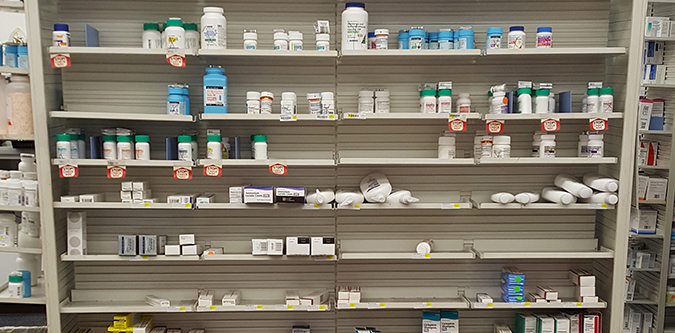The week of March 9th for Barbara was one full of anxious waiting by the mailbox. On the 11th, after months of waiting, her green card came in--ensuring she could stay and continue the life she had started to build in the United States. On the 13th, she was matched into a pharmaceutical residency, putting her in an intensive training program in one of Chicago’s hospitals this summer.
For Barbara, who was born in Ethiopia and came to the United States on a scholarship, working in pharmacy is deeply tied to the injustices and inequalities she witnessed as a child.
“I was born and raised in Ethiopia, and growing up there you witness a lot of healthcare disparities and lack of access to basic overall healthcare,” she said. “Luckily, I grew up in the city, so I didn't experience that firsthand, but I knew a lot of family members who were faced with those issues. It was very early on that I developed a passion for healthcare, and when I moved to the States, I realized that pharmacists have a great impact on the healthcare system, especially those in the community setting. They're a lot more accessible than any healthcare professional, you can pretty much just walk into a store and speak to a pharmacist, and they're able to help you with your medications or direct you to the right resources. It felt like this would be a great way to give back to the community and help others.”
Barbara’s journey to becoming a pharmacist was not easy. After graduating from undergrad and marrying her husband, he petitioned for her to receive a conditional green card--one that made Barbara’s immigration status dependent on their marriage, a necessity for couples that have been married for less than two years when they apply. Barbara’s permanent resident status was approved within a year, but that’s when things changed for her.
“As soon as I got the green card, he turned into a different man,” Barbara said. “He became somebody I never really knew, and that's when the abuse began. He began to drink, he couldn't really hold down a job, got into a lot of arguments with me, family members, his friends, boss, and everybody else.”
 As her husband bounced between their house, his parents’ home on the West Coast, and their home country, Barbara began to worry about what she would do when she became eligible to apply to have the conditions removed from her green card. For many who obtain conditional green cards as a result of marriage, filing for the permanent green card is done jointly with their U.S. citizen spouses but if the partner is no longer cooperating in the immigration process, the government allows for an exception to be filed--a somewhat more complicated process.
As her husband bounced between their house, his parents’ home on the West Coast, and their home country, Barbara began to worry about what she would do when she became eligible to apply to have the conditions removed from her green card. For many who obtain conditional green cards as a result of marriage, filing for the permanent green card is done jointly with their U.S. citizen spouses but if the partner is no longer cooperating in the immigration process, the government allows for an exception to be filed--a somewhat more complicated process.
“The abusive relationship that I was in definitely made things a lot more difficult for me,” she said. “He kept threatening me, kept saying that he would have me deported if I didn't do certain things right, these threats made things extremely difficult for me.”
Finally, with the help of her in-laws, Barbara was able to get a divorce, and was ready to apply for her green card. A family friend referred her to the National Immigrant Justice Center (NIJC), where attorneys connected her to counseling services, and helped her file additional letters from friends and family to provide proof for the government that her marriage had both been entered into in good faith--that she hadn’t gotten married solely for immigration purposes--and that it became abusive.
“The attorneys have all been very amazing to me, very comforting,” Barbara said. “If I had questions, they would email me back right away, and any issues that I brought up they tried their best to help me. They comforted me and were there for me during the darkest times of my life. Sometimes I ask myself, how did I get so lucky to work with NIJC?”
Despite the turmoil she was living through, Barbara still managed to complete her degree and graduate from pharmacy school. She said the residency she’ll soon be immersed in--an opportunity that became possible when she secured her immigration status--will help her help others. She’s particularly excited to work in a hospital because of the opportunities it opens.
“The residency helps you take on more competitive positions where you're able to develop more relationships with patients. You can work directly with them,” she said. “It gives you more freedom, it gives you more time, and it allows you to build more connections with patients.”
In the end, her work in the medical field comes down to being able to give back to the community that helped her through a difficult time in her life.
“It is definitely very stressful to go through pharmacy school with all this stress in the background, not knowing where your case is, just thinking ’Am I going to get denied? Am I going to get deported? If I get a deportation order, who's going to help me with it?’” she said. “That was actually one of my biggest fears while I was applying to residency. In the end, with a lot of collaboration between the wonderful people at NIJC and I, everything worked out. I have therefore made a commitment that to give back to my community and help out others in need.”
Alejandra Oliva is the communications coordinator at NIJC.

